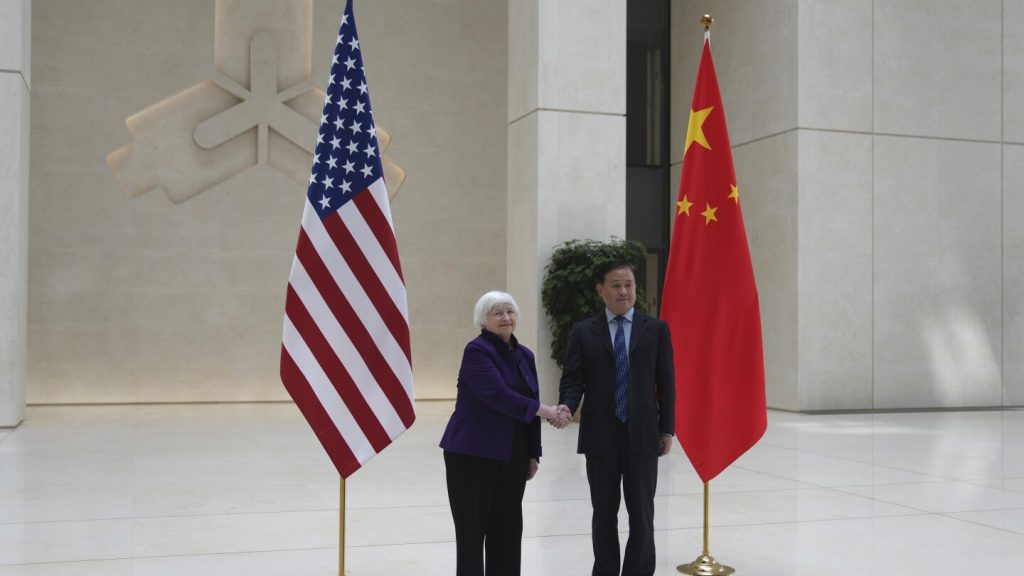The U.S. and China are currently embroiled in a new trade fight centering around China’s burgeoning production of electric cars and other green technologies. Concerns are mounting that China’s increased production could lead to an influx of cheap exports that may undercut industries in the U.S., Europe, and Mexico. Former President Donald Trump has criticized China’s tactics and warned of potential threats to the U.S. auto industry. The Biden administration has also raised concerns about China’s dominance in various industries, including electric vehicles, solar panels, and batteries.
China has heavily subsidized its automakers over the past decade, leading to the development of a substantial car industry that now accounts for a large portion of global electric vehicle sales. However, Chinese companies are producing more electric vehicles annually than they can sell domestically, prompting them to seek markets overseas. This has raised concerns about the potential impact on other industries, such as solar panels, batteries, and steel, as China looks to export more products globally.
The trade fight between the U.S. and China is not a new phenomenon, as similar concerns have been raised in the past over issues such as steel and aluminum imports. The Biden administration has kept tariffs on these imports, and the concerns about overcapacity in cutting edge sectors like solar cells and batteries have become more pronounced. China’s subsidies for the production of goods far exceed those of the U.S., creating an uneven playing field in the global market.
While the U.S. has also provided financial support to industries like clean energy and semiconductors, China’s industrial subsidies dwarf those of the U.S. in dollar terms. China’s focus on production rather than consumption has led to concerns about the impact on global markets. The two countries have agreed to hold talks on the issue, but China has not committed to taking steps to address American concerns. Beijing acknowledges the challenges of manufacturing overcapacity and weak consumer spending as it aims for sustainable economic growth.
The expansion of electric vehicle production in China has led to intense price wars, potentially driving some manufacturers out of business. China is now seeking better policy coordination to encourage the development of new technologies without causing overinvestment in certain industries. U.S. Treasury Secretary Janet Yellen has highlighted the importance of addressing China’s industrial strategy to prevent flooding global markets with exports. While there is no immediate solution, both countries are engaged in discussions to address these ongoing trade tensions.


